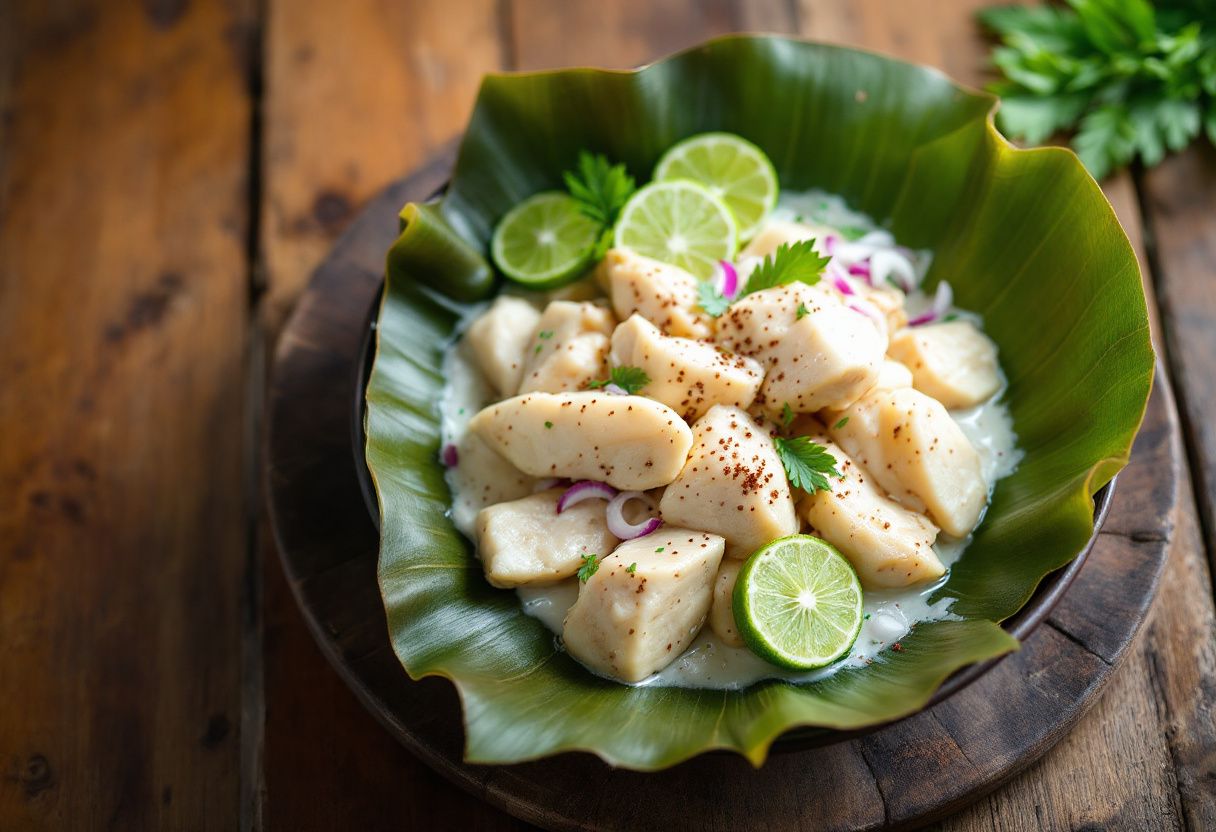Umu Ikai
Introduction to Umu Ikai
Umu Ikai is a traditional Polynesian dish that is a grand representation of communal island cooking. The term "umu" refers to the Earth oven, a vital component of Pacific Island culinary practices. This method of cooking, deeply rooted in tradition and community, involves cooking food underground using heated stones. Umu Ikai, specifically, is a celebrated dish because it not only captures the essence of Polynesian tastes but also brings people together through the cooking process that is often shared among family and friends.
The Cultural Significance of Umu
The umu technique has been practiced for centuries across various islands in the South Pacific. It's known under different names; for instance, in Hawaii, it’s referred to as "imu," and in New Zealand among the Maori, it’s known as "hangi." It symbolizes the unity and bond of community, as the preparation and cooking involve multiple hands, often spanning several generations.
In Samoa, the umu serves as a traditional form of cooking used during celebrations, feasts, and other significant events. This time-honored method effectively retains the flavors and nutrients of the food due to the slow cooking process that takes place beneath the Earth.
Unique Aspects of Umu Ikai
Umu Ikai is characterized by its use of fragrant banana leaves and wide array of local ingredients that are typically seasonally available. This dish is often comprised of root vegetables such as taro and sweet potatoes, as well as proteins like chicken or fish, which are luxuriously wrapped in banana leaves to infuse them with a unique earthy flavor.
The preparation of Umu Ikai embodies patience and care, with every step thoughtfully executed to ensure the right balance of flavors and textures. The slow cooking process rewards those who partake with a sense of profound satisfaction that is as much about the ritual as it is about the meal itself.
Ingredients for Umu Ikai
Preparation Steps
Step 1: Gather and Prepare Ingredients
To begin, gather fresh taro, sweet potatoes, and chicken. The quality of these ingredients significantly impacts the final taste, thus local or organic options are preferred. Clean the banana leaves by wiping them with a damp cloth, then set them aside for wrapping.
Step 2: Marinating the Chicken
Create a marinade by combining freshly squeezed lime juice, minced garlic, sliced onions, salt, and pepper. Coat the chicken pieces thoroughly and allow them to marinate for at least an hour. This imparts deep flavor and tenderizes the meat.
Step 3: Preparing the Pit
Prepare the umu pit by digging a shallow hole in the ground, lined with stones. Kindle a fire to heat the stones. Once the stones are sufficiently hot and glowing, brush off any ash to maintain cleanliness for the food.
Cooking Process
Step 4: Assemble and Wrap the Layers
Banana leaves form the cooking vessel. Start by layering the leaves over the hot stones, then arrange the root vegetables — notably taro and sweet potatoes — followed by the marinated chicken. Pour a rich drizzle of coconut milk over the assembly for added moisture and flavor.
Step 5: Seal and Cook
Layer additional banana leaves over the food, creating a tight seal. This traps the steam and flavors as they slowly cook underground. Cover everything with a layer of earth to encapsulate the heat fully. Leave the umu to cook for three to four hours; a cooking timer can be handy to track this period.
Serving and Enjoying Your Umu Ikai
Umu Ikai is traditionally served family-style. Uncover the cooked meal with care, lifting the banana leaves to reveal steaming, fragrant food beneath. The smoky, aromatic experience of unveiling the meal is part of its charm.
A well-cooked Umu Ikai will have tender, juicy chicken, with root vegetables soft and infused with the essence of the banana leaves and coconut milk. This dish is best enjoyed in an outdoor setting, surrounded by family and friends, where each bite evokes the essence of island life and its connected community spirit.
Conclusion
Celebrating traditional cooking methods through dishes like Umu Ikai not only preserves cultural heritage but also enriches our culinary experiences. As you taste the culmination of carefully prepared ingredients and time-honored techniques, you'll find that Umu Ikai offers more than just sustenance; it delivers a story of togetherness and respect for nature's resources.
